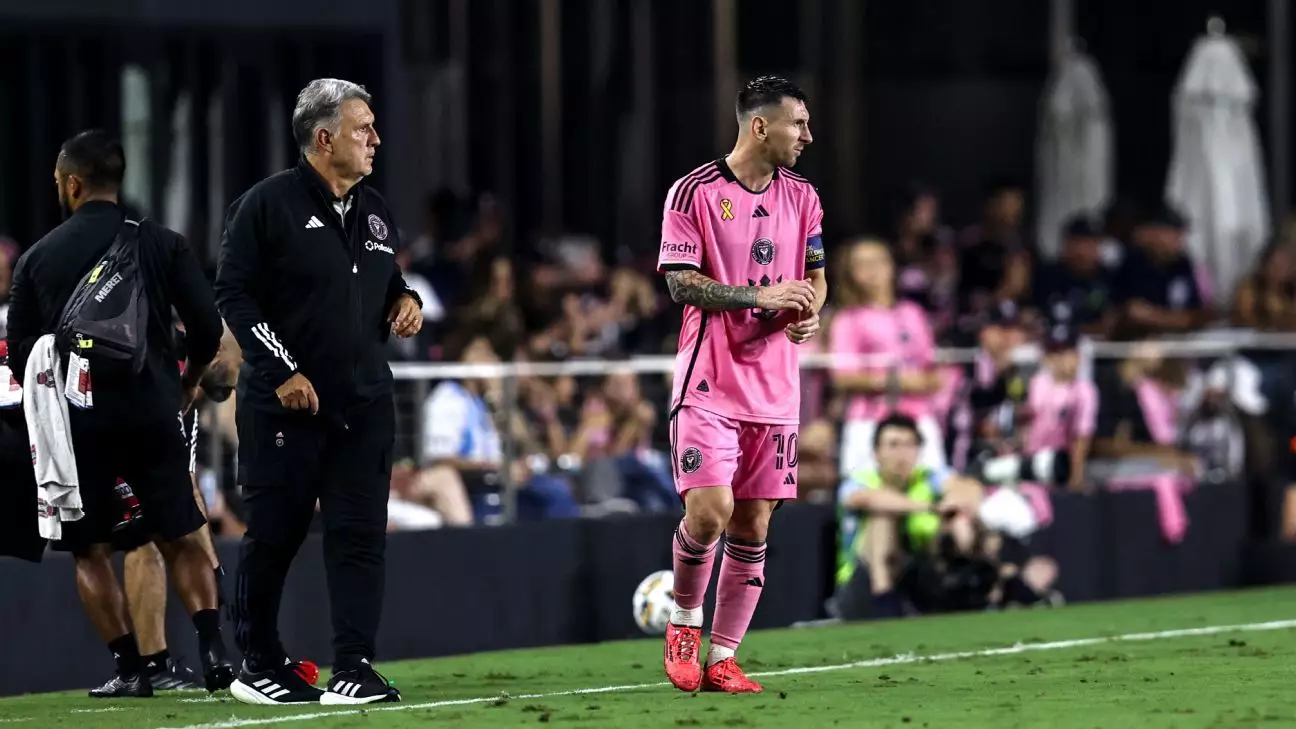In the resplendent world of football, the Ballon d’Or has historically been seen as the pinnacle of individual accolades for players. This year showcases a unique scenario, with the emergence of fresh talent juxtaposed against the storied legacy of Lionel Messi. Gerardo “Tata” Martino, the Inter Miami coach, sparked discussions with his remarks about Vinícius Júnior’s potential as a worthy recipient of the prestigious award. While acknowledging the Brazilian’s exceptional performance, Martino did not shy away from asserting that Messi remains, in his eyes, the best player globally. This dichotomy reflects not only the evolution of talent in the sport but also the persistent shadow cast by legends like Messi.
At just 24, Vinícius Júnior has captivated fans and experts alike with his astonishing prowess on the pitch. Last season, he delivered a breathtaking show for Real Madrid, securing 24 goals and providing 11 assists across all competitions. His role in crucial matches, particularly in pivotal moments like the Champions League final win against Borussia Dortmund, has earmarked him as a player of immense significance in contemporary football. With strong performances continuing this season, one can argue that Vinícius Júnior not only deserves recognition but also may represent a new generation of footballers ready to take the mantle from long-standing icons.
Despite the rise of players like Vinícius, Lionel Messi’s absence from this year’s Ballon d’Or nominations is striking. Known for his unparalleled achievements, including a record eight wins, Messi’s presence has been a mainstay in discussions surrounding the best player in football since 2003. Even at 37, he continues to electrify both his teammates and opponents, demonstrating agility and skill that defy age. Jordi Alba, a veteran defender and former teammate, expressed surprise at Messi’s omission from the nominations, illustrating the pervasive belief that the Argentine continues to be a pivotal force, even in a different league than the one where he made his mark.
Martino’s sentiment that the Ballon d’Or may sometimes lack clarity regarding its intent is thought-provoking. Is it truly a validation of the best talent, or does it simply reward the most successful player of a given season? This ambiguity may increase as new talents like Vinícius emerge, challenging the traditional criteria by which greatness is measured. While acknowledging that Vinícius may deserve recognition for his incredible season, the undeniable reality remains that Messi’s legacy is a complex interplay of skill, influence, and impact.
As the footballing landscape evolves, the discussion surrounding the Ballon d’Or becomes more nuanced. Players like Vinícius Júnior signify the promising future of the sport, alongside legends who have set unprecedented benchmarks. While Messi’s legacy remains unchallenged, the emergence of new stars places football in a tantalizing position where recognition takes on multiple forms. The forthcoming celebrations of individual achievements will serve as both a recognition of past glories and an invitation to witness the unfolding narrative of future legends. Ultimately, the debate surrounding the Ballon d’Or will not only illuminate individual brilliance but also the collective journey of football itself.

Leave a Reply